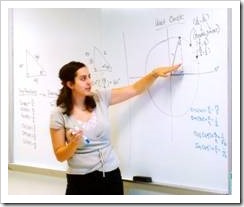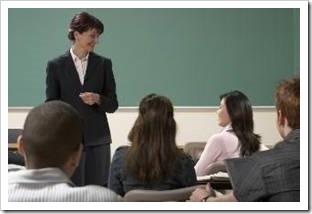
- When I need to cover a topic over 8 weeks, I aim to finish it early, maybe in 6 weeks. This gives me time to deal with unexpected circumstances that pop up. If everything goes to plan, we have 2 weeks to have fun. If not, we have two weeks to compensate for the delay.
- If I want to help my student, I must take care of myself. Kids are born with senses to read the people around them. There is no point pretending when you are around them. They will be able to tell when something is wrong.
- It is not a good idea to compare the ‘new’ generation with the ‘old’ generation because times are different.
- Celebrating birthdays in class is very important. It does not necessarily have to be about eating copious amounts of sugar. It is more about paying full attention to one child for an hour. Having a class album that rotates between the kids is a good way to help children celebrate their growth.
Creativity, flexibility, tolerance and love are natural states of mind and our purpose as teachers is to nurture them into full blossom
– Ronit Baras - Noisy classes are a good thing! Kids, who move around, talk to each other, help each other, ask for help and are physically active think more effectively.

- As a teacher, I teach kids. However, the parents are the real clients. It is part of my job description to establish good relationships with parents. A good reporting system can be a great way to make this happen.
- Parents and teachers are some of the most important agents in kids’ lives. It is therefore important that they collaborate. I run parenting workshops about educational topic and how to empower parents to take an active part in their child’s education.
Grades are for teachers, not for kids – test results are not only an indication of how well a child has learned a subject but also how well the teacher has taught it.
– Ronit Baras - Grades are for teachers to find out how well they have taught the kids. They are not for the kids. My students take part in setting their own goals and evaluating their own success. What they think of their effort and achievements are way more important than what I think as a teacher.

- Uniforms are the invention of control freaks. They destroy kids’ ability to express themselves and feelings of uniqueness. Schools that focuses too much on the uniform detract from the teaching.
- Academic achievement is a side effect of strong emotional intelligence. When students are struggling with their academic achievements, I need to find ways to strengthen their emotional state instead of making them ‘study more’.
- The government today is paying the price of the previous governments’ choice not to invest in education. By doing this, they go against the biblical quote by Jeremiah “The people will no longer quote this proverb: ‘The parents have eaten sour grapes, but their children’s mouths pucker at the taste”. Parents and teachers are some of the most important agents of change in society and they should be invested in, so that governments 100 years from now won’t have to pay the price.

- When kids fight, it is a wonderful opportunity to teach them about conflict resolutions. This is more important than any math or English lesson. It is also important that as a teacher, I am a facilitator and an agent of change, not a judge.
- Physical touch is essential for kids’ health and wellbeing. I hug my students, I pat them on the shoulder, or play with their hair (if they do no mind). I think this is one of the reasons they are happy to work with me.
- Teaching is the tool and education is the outcome. Much like the artist uses a brush to paint, the teacher is the artist, teaching is the brush and education is the finished canvas.
Teaching is the business of manipulating students into thinking they are smart, courageous, talented, friendly, able and happy.
– Ronit Baras - It is my job as a teacher to teach kids that there is not such a thing as failure, only learning opportunity. The way a teach reacts to mistakes will impact the children. Remember that children come to school to learn this they do not know. They will make mistakes. You cannot expect them to know something you have not taught yet.

- In teaching, I do not like the word “average”. It is not my job to raise average kids. My kids learn that “average” is an insult. They are unique. One of a kind. They should never compromise their uniqueness to be the same as ‘everyone else’. I often remind myself that, “doing no more than the average is what brings the average down”.
Join me in the next chapter for 20 more beliefs that can help you in your education and teaching journey.
Happy teaching,
Ronit















